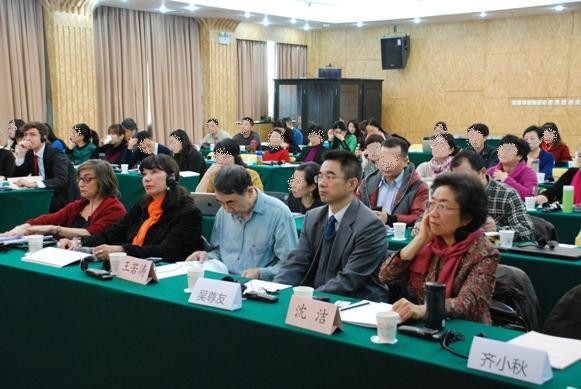Last month, the Supreme Court of the United States ruled that the nation’s Constitution guarantees a right to marriage and equal protection under the law, making same-sex marriage legal in all fifty states. In the aftermath of the ruling, three Chinese LGBT activists came together to discuss–in their own terms–what the landmark decision means for them, their community, and for China.
Asia Monthly News Round-up: June 2015
Welcome to Asia Catalyst’s monthly media roundup.
Public awareness is key to understanding and promoting human rights. Here is this last month’s news reflecting developments for some of the key affected populations that we work with. (more…)
Their Today is Our Tomorrow: Reflections from the China Red Ribbon Forum Conference on Women and HIV
In November, my colleagues from the Jiaozhou Health and Counseling Center and I were invited to attend a conference titled “Women and HIV in the Context of Commercial Sex.” The China Red Ribbon Forum–a platform for government and civil society organizations to discuss HIV and rights issues–and several UN agencies hosted the conference. There, we met officers from UNAIDS, the United Nations Population Fund, the China AIDS Association, sex worker delegations from New Zealand and Vietnam, and staff from domestic organizations that focus on preventing HIV/AIDS for sex workers.
The first thing I learned from this seminar was the “Chatham House Principle ” which ensures that participants of the seminar were able to speak freely under guaranteed confidentiality. Under this relaxed and harmonious atmosphere, all participants, including us sex workers, could fully express themselves.
New Report: Survey of Chinese Transgender Female Sex Workers
(Friday January 16, Beijing) Transgender female sex workers are amongst the most marginalized and discriminated populations in China, Asia Catalyst said in a new report published today. The Chinese government should decriminalize sex work and enact anti-discrimination legislation including gender identity and sexual orientation as protected categories.
The 72 page report, “My life is too dark to see the light– A Survey of the Living Conditions of Transgender Female Sex Workers in Beijing and Shanghai” documents the daily reality for transgender female sex workers in Beijing and Shanghai. Based on 10 months’ research by Asia Catalyst and two Chinese community based organizations, Beijing Zuoyou Center and Shanghai CSW (commercial sex worker)&MSM (men who have sex with men) Center, the report documents discrimination, police violence, legal restrictions and a policy environment preventing this highly marginalized group’s access to public services, legal identity and appropriate health care. They experience amplified stigma due to both their gender identity and their profession. (more…)
Anniversary Reflections: Eight Years of Catalyzing Change
By Charmain Mohamed
Charmain Mohamed is Executive Director of Asia Catalyst.
Over the last eight years Asia Catalyst has grown in size and stature to become a leader in curriculum development and advocacy that furthers the right to health for marginalized groups in Asia. The transition has been a remarkable one, not least because it happened within the context of a global recession and a steady decline and re-focus of international HIV funding. Our measure of success however, is not a financial one, nor even one of organizational sustainability, but rather one of impact. Impact for the communities we work with, and impact on addressing some of the worst effects of punitive laws and regulations on HIV, and access to an adequate standard of health for all.
Eight years ago the global number of people dying because of AIDS was at its highest ever. That number has fallen by 35% in the last eight years, mainly because of an increase in access to treatment for people living with HIV. At this year’s AIDS 2014 conference in Melbourne, Australia, UNAIDS Executive Director, Michel Sidibe, remarked that, if similar progress continued and accelerated, we were “on track to end the epidemic by 2030.” However, with two thirds of people living with HIV still not accessing treatment, lack of vigilance now could see current progress eroded and targets being set back by a decade, if not more. Last year UNAIDS reported an estimated 2.1 million new infections and 1.5 million AIDS related deaths globally. Clearly there is more to be done.









